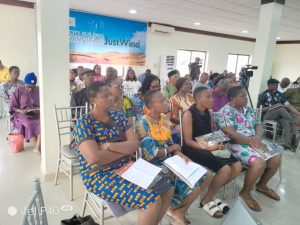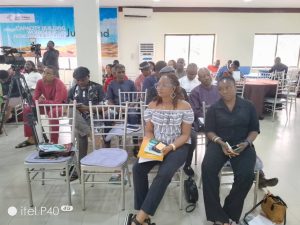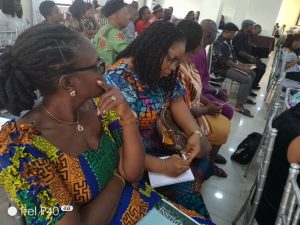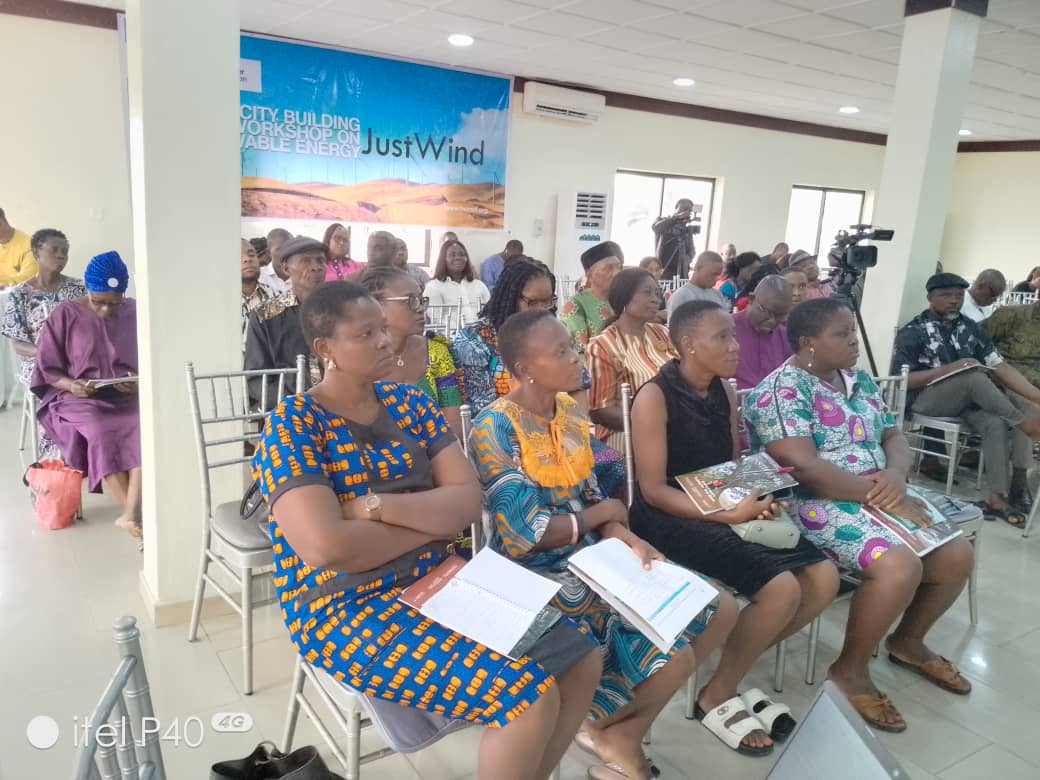As part of her efforts to safeguard the planet from suffocating, the Health of Mother Earth Foundation (HOMEF) has held a capacity-building workshop in Rivers State on renewable energy.
The event, which was attended by representatives of the Rivers State Ministry of Environment, the Ministry of Agriculture, civil society organisations, the Nigeria Maritime Administration and Safety Agency (NIMAS), opinion leaders, and community leaders, was held on Friday at Golden Tulip Port Harcourt.
The facilitators of the programme were the Executive Director, Policy Alert, Mr. Tijan Bolton-Akpan, Prof. Fidelis Allen, and Dr. Confidence Samuel, who represented Dr. Emem Okon of Kebetkache.
Addressing participants at the symposium, HOMEF Programme Manager, Mr. Stephen Oduware, explained that the workshop was aimed at increasing awareness on the issues of climate injustice, emphasising the need for community engagement, and sensitising people on the needed transition from fossil fuels to renewable energy.
According to him, it was also to enlighten government agencies on how to mainstream community concerns into government projects and educate communities on ways to prevent the challenges faced in the oil and gas civilisation in the renewable energy era.

“We are here in Port Harcourt to have this capacity-building workshop on renewable energy with different stakeholders; we have people from the Rivers State Ministry of Environment, staff of the Rivers State House of Assembly, the Rivers State Ministry of Agriculture, NIMASA here, and communities as well as civil society groups to talk about renewable energy.
“We know that the fossil civilisation is ending, and this discourse about renewable energy is just apt at this time, but we know that when these renewable energies are deployed, they are going to be deployed in communities, so we are having this conversation.
“It is to look at how we will not fall into the same trap, into the same issues that we had with the oil and gas civilisation, where it polluted communities, encouraged land grabbing, sea grabbing, and all of that.
“How do we make communities central in this renewable energy discourse? So that is what we came here for, and to also speak to the government agencies on how to mainstream community concerns into government projects.”

Recalling research carried out by HOMEF on the perception of community members about renewable energy and climate change, Oduware said, “We found out that community members are very knowledgeable about some of these issues, and they are also willing to participate in the renewable energy discourse.
“It’s now left for us to ensure that their concerns are mainstreamed in this discourse and to ensure that we do not use it as an avenue to dispossess them, we do not use it as an avenue to suppress them, we do not use it as an avenue to oppress them, we do not use it as an avenue to grab their land, to grab their water, and make them go into hardship like the oil civilization has done. So, we are up for justice even in this renewable energy discourse.”
He further explained that “renewable energy is one that is gotten from renewable sources like the sun, the wind, and all of that, but it also has its own negative impact because we have issues where communities are now crying because of the impact of lithium mining, a critical mineral for the transition; lithium mining in Abuja, in Nasarawa, and in other places. So, how do we ensure that these things do not become a menace to our communities?
“We know that renewable energy will ensure that there is no emission of CO2, which is one of the gases that is causing the global warming that we are experiencing now, so with renewable energy, we have that taken care of.”
In his message to the government, Oduware urged the government to wear human faces in their dealings with communities, insisting that communities need to be consulted, be part of the process, own the process, and be recognized, supported, and protected against harm.

To the communities, he said, “The role of the communities is to ensure that they look at whatever is coming, weigh it, and be able to make informed decisions in this whole discussion.” Communities should be able to participate in this renewable energy project, but they should ensure that their rights are not usurped.”
He charged the participants to “as they leave here, they need to also pass the message to the wider society to step down whatever they have come to learn here and to begin to have those discussions even in their individual spaces, even at work and even in their communities, and to ensure that they also join the fight against the suppression of our communities and to join the fight for justice in all that is done in our communities.
Prof. Fidelis, peaking on Allen, who spoke on the topic “Fossil Fuel, Environmental/Climate Justice, and the Needed Transition,” opined that global climate justice is a movement that acknowledges climate change can have disproportionately harmful social, economic, and public health impacts on populations.
According to him, human activities have been the main cause of climate change, primarily due to the burning of fossil fuels like coal, oil, and gas, urging communities to embrace renewable energy options that suit them with consideration for location and cost.
On why communities should embrace renewable energy as an alternative, Allen added that “a just transition from fossil fuel to renewable energy means ensuring fairness, justice, and wellbeing, leaving no one behind in responding to the climate crisis.”
Related Post
- Rivers High court declare 25 Rivers Assembly Seat Vacant
- Post-election violence: NGO describes Rivers as primitive state
While Dr. Confidence Samuel spoke on gender mainstreaming, its principles, challenges, opportunities, and what should be done to address gender energy poverty, Mr. Tijah Bolton-Akpan addressed unpacking community engagement processes for government projects, where he enlightened participants on the approaches to community engagement, its importance, strategies for effective engagement, and made recommendations to federal, state, and local governments and communities.
In response to the event, the representative of the state Ministry of environment, Dr. Nimi Elele, said, “Good thing we are here; we are happy with what is going on. I still wish and welcome more collaboration so that you can do more of your enlightenment in our communities. At least we are partnering; our emphasis always is partnership for the goals, to partner over and over again to achieve our sustainable development goals.”
Also, the representative from NIMASA, Mrs. Bapakaye Young-Harry, commended all the facilitators for the enlightenment. She also appreciated HOMEF for being like a brother and friend to Nimasa, urging them to continue the good work.
She said, “My concern with all that we have done today is how the communities are going to benefit from this. We know that it is very expensive for them to get this, and I want to appeal to the government to assist the communities and make this work for them.
“Also, we know that even if they get this wind energy and solar power, they still need more of this enlightenment to know how to maintain and sustain it.”




